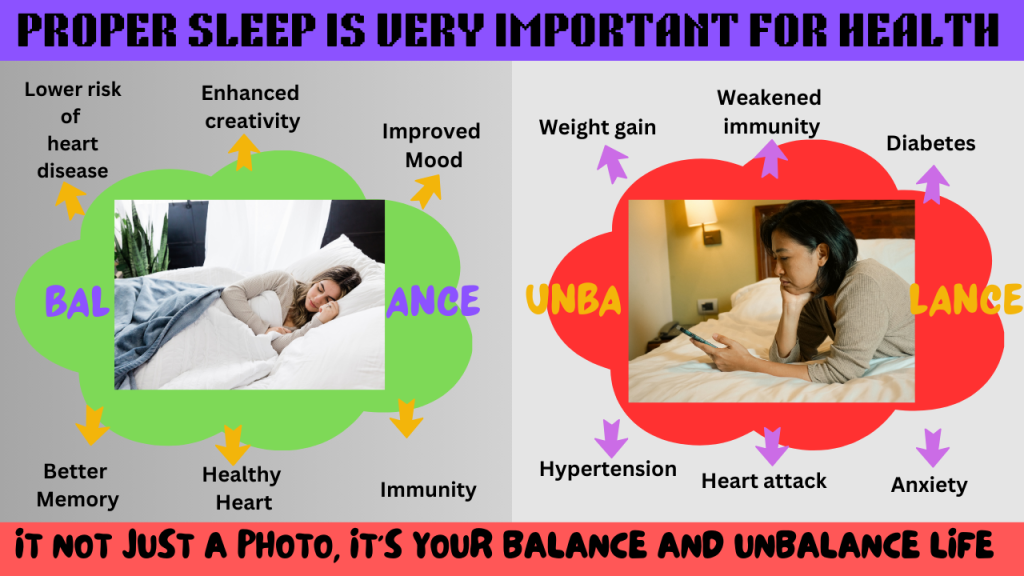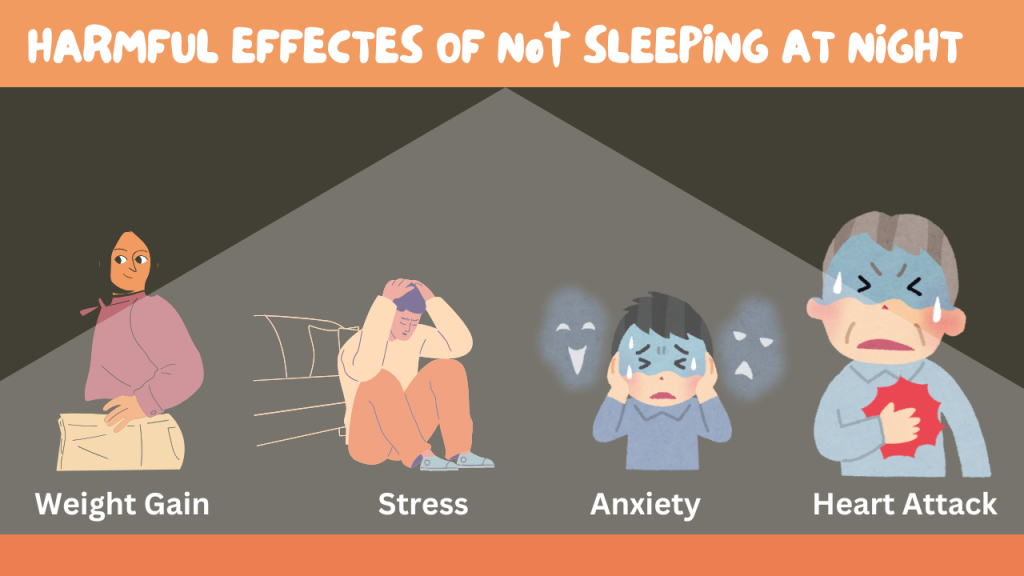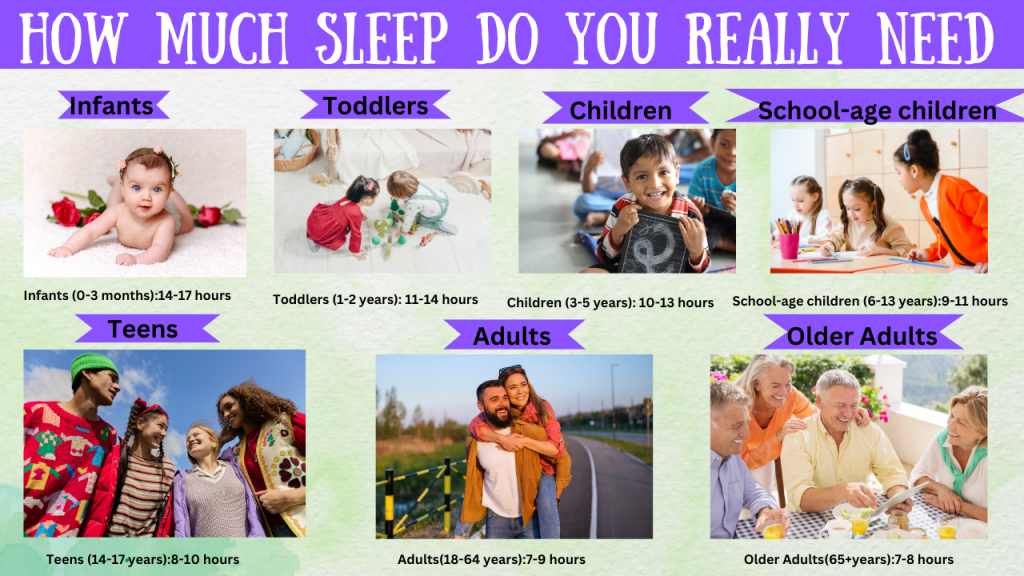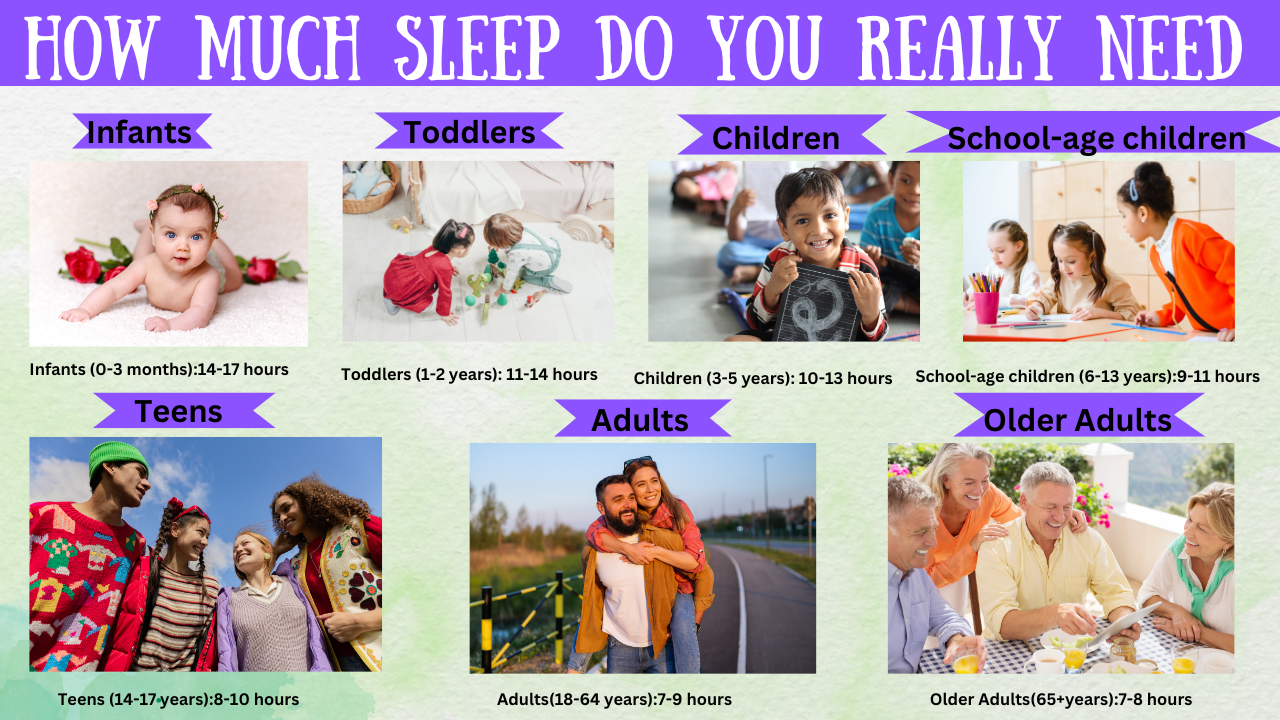In our fast-paced, 24/7 world, sleep often takes a backseat to our busy lives. We push ourselves to the limit, thinking we can catch up on rest later. However, the truth is that consistently getting enough sleep is not a luxury—it’s a necessity. Sleep plays a critical role in our overall health, productivity, and emotional well-being. In this blog, we’ll explore why getting enough sleep is so important and how you can improve your sleep habits to feel more rested, energized, and focused every day.

Why Sleep Matters
Sleep is a vital process that allows our bodies and minds to recover, repair, and rejuvenate. While we sleep, our bodies work to repair muscles, consolidate memories, and boost immune function. Our brains process and organize information, helping us solve problems, think more clearly, and make better decisions.
Here are just a few of the many benefits of getting adequate sleep:

- Improved Cognitive Function
A good night’s sleep helps with concentration, memory retention, and problem-solving. Sleep allows our brains to process the information we’ve absorbed throughout the day and to strengthen new memories, making us more alert and focused when we’re awake. - Better Mood and Emotional Health
Chronic sleep deprivation is linked to an increased risk of mood disorders like depression and anxiety. Sleep helps regulate emotions, and when we don’t get enough, it becomes harder to manage stress and negative feelings. - Boosted Immune System
When we sleep, our immune system gets a chance to strengthen. People who are well-rested tend to have fewer illnesses than those who don’t get enough sleep. This is especially important during flu season or when your body needs to fight off infections. - Enhanced Physical Health
Sleep plays a significant role in heart health, metabolism, and weight management. Lack of sleep can disrupt hormones related to hunger and appetite, potentially leading to overeating. It’s also linked to a higher risk of conditions like heart disease, diabetes, and high blood pressure. - Increased Energy and Productivity
Simply put, when you get enough sleep, you feel better, and you perform better. Whether you’re working, studying, or engaging in physical activity, a rested body and mind are far more effective and efficient.

How Much Sleep Do You Really Need?
The amount of sleep needed varies by age and individual requirements, but here are general guidelines provided by the National Sleep Foundation:
- Infants (0-3 months): 14-17 hours
- Toddlers (1-2 years): 11-14 hours
- Children (3-5 years): 10-13 hours
- School-age children (6-13 years): 9-11 hours
- Teens (14-17 years): 8-10 hours
- Adults (18-64 years): 7-9 hours
- Older Adults (65+ years): 7-8 hours
While these are averages, it’s important to listen to your body. Some people may feel fully rested with 7 hours, while others may need 9 hours to feel their best.
Tips for Getting Better Sleep
If you’re struggling to get enough sleep, don’t worry—there are several steps you can take to improve your sleep quality and quantity. Here are a few practical tips for getting a better night’s rest:
- Create a Consistent Sleep Schedule
Going to bed and waking up at the same time every day—even on weekends—can help regulate your body’s internal clock. Consistency makes it easier to fall asleep and wake up naturally, leading to better overall sleep quality. - Create a Relaxing Bedtime Routine
Establishing a calming pre-sleep routine can help signal to your body that it’s time to wind down. This might include activities like reading, stretching, meditating, or listening to soothing music. Avoid using electronic devices like phones and computers right before bed, as the blue light emitted can interfere with your body’s ability to fall asleep. - Optimize Your Sleep Environment
Make your bedroom a peaceful haven by keeping it cool, dark, and quiet. Consider using blackout curtains, earplugs, or a white noise machine if necessary. Ensure your mattress and pillows are comfortable, as physical discomfort can hinder your sleep. - Be Mindful of What You Eat and Drink
Avoid large meals, caffeine, and alcohol before bed. While alcohol may help you relax, it can interfere with your sleep cycle, leading to restless nights. Similarly, consuming caffeine too late in the day can make it harder to fall asleep. - Get Regular Exercise
Physical activity during the day helps regulate your sleep-wake cycle. Just be sure not to exercise too close to bedtime, as it may leave you too energized to sleep. - Manage Stress and Anxiety
Practicing relaxation techniques like deep breathing, yoga, or journaling can help reduce the stress and anxiety that may be keeping you awake. If you’re finding it difficult to fall asleep because of racing thoughts, it can be helpful to write them down before bed and set them aside until the morning.
The Impact of Sleep Deprivation
Unfortunately, many of us are all too familiar with the consequences of sleep deprivation. Chronic lack of sleep can lead to:
- Impaired cognitive function: Difficulty focusing, forgetfulness, and poor decision-making.
- Weakened immune system: Increased susceptibility to illness.
- Mood swings and irritability: Heightened emotional responses and greater stress.
- Decreased physical performance: Slower reaction times and less endurance.
- Increased risk of chronic conditions: Sleep deprivation has been linked to a higher risk of obesity, diabetes, and heart disease.
Sleep deprivation doesn’t just affect how you feel in the moment—it can have long-term impacts on your physical and mental health.
Final Thoughts
Sleep is one of the most important aspects of our health that we often take for granted. By prioritizing sleep, you can improve your cognitive function, emotional well-being, and physical health. If you’re not getting enough sleep, it’s time to start taking steps to improve your sleep habits.
Remember, getting enough sleep isn’t just about quantity—it’s about quality, too. It’s worth investing time and effort into creating a sleep-friendly environment and routine that works for you. After all, a well-rested mind and body are essential for living a vibrant and productive life. So, let’s start making sleep a priority today!


